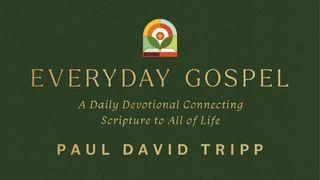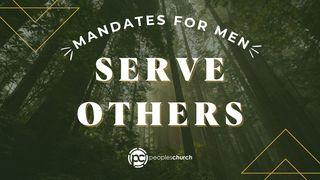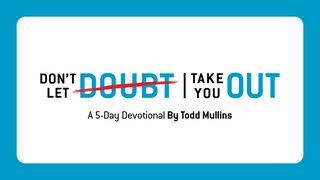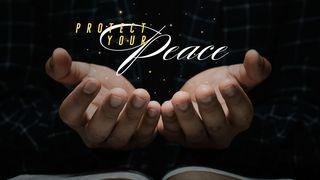Cities Of Refuge: Refined By GraceSample

One of the most distinctive attributes of the Cities of Refuge is the unparalleled mercy offered by their existence. In the ancient world (and in surprisingly numerous modern communities), blood feuds were the norm. If someone was killed, whether premeditated or by accident, the next of kin was allowed to spill the lifeblood of the perpetrator without recourse. But, Yahweh turned that tradition on its head. Yes, a murderer was executed since the price of a life is a life, but someone who killed by accident was allowed to run to a Levitical refuge city for safety, given a fair trial, and protected for the duration of their life in that city. Of course, there were natural consequences and that person was imprisoned until they died, or the High Priest did. But, even so, they were given a second chance—a “new life” in many respects.
Since the Levites were given the duty of judging the people and upholding the Law, it was they who would offer mercy to the accused. They also ensured that once the manslayer lived within the walls of the refuge city, they were given what they needed to survive since they could no longer tend their own farms or whatever occupation provided for their needs. The Levites were also charged with tending to the sin offering in the holy sanctuary, which by its very nature is a great mercy (Lev 4:32-35). Yahweh did not need to provide a means by which the priests could mediate between his perfect righteousness and the people who would die in its presence, thereby foreshadowing the once-and-for-all sacrifice that Yeshua offered on the cross, but in his vast mercy he chose to do so.
The tribe of Levi stumbled so many times before they triumphed at Mt. Sinai when they stood firm against the idolatry of the Golden Calf and were subsequently ordained for sacred service (Exodus 32:29). So it was pure grace that they were offered such a role—especially Aaron who definitely knew better and was central to the horrific act of abomination before the Lord, yet was lifted into the role of High Priest in spite of his sin.
What an undeserved privilege it was for the Levites to offer mercy to their Hebrew brethren through their work in the sanctuary, even though that grace was transitory until Yeshua laid down His own perfect life on the altar (Hebrews 10:14). And what an undeserved privilege it is for us to be called sons and daughters of the King and to serve as His priests in extending mercy to this dark world.
Unfortunately, the Church has fallen down in the area of mercy time and time again over the past two thousand years when His Body should be known for its abundant and extraordinary mercy. Both individually and corporately we must seek to remedy this failing, through the power of the Holy Spirit, and lift high the name of Yeshua by lavishing mercy on the hurting, the broken, and the lost.
Does showing mercy mean that we abandon biblical truth? Of course not. We can and should show mercy and loving-kindness to even those who violently disagree with us, who live lifestyles that are contrary to the Word, and those who curse and mock us—while continuing to live lives of righteousness for His name’s sake and honoring the Word of God. What better way to stand apart from a world that demands its own satisfaction and wastes its energy dwelling on personal offenses and instead be a beacon of light that draws others to the Truth?
Those of us who make up the Church should be reaching out in the spirit of unconditional love to those who are suffering and those who are shackled to sin, even if we never see the fruits of that work and even if those to whom we show loving-kindness throw those offerings back in our faces. May we never forget that we, too, once were lost and blind. We, too, were once desperately in need of mercy and the grace only offered by Yeshua’s shed blood. We, too, were once enemies of the Cross (Phil 3:17-21).
So let us, as priests of the Most High God, conduct ourselves with holiness, trust Him with every need, serve him with all diligence, uphold and teach His ways, be reflections of his glorious light, and offer a hand of mercy and kindness to a lost world. Not only are these sacred duties that we should pursue purely for the sake of obedience, but our dedication to these priestly responsibilities will help refine us, purify our hearts, and mold us into the image of Yeshua our perfect Great High Priest (Heb 4:14-16) through the transformative power of His grace and Spirit.
QUESTIONS TO CONSIDER:
Which people in your life do you have difficulty reaching out to in an attitude of mercy? What ways can you be more intentional in making loving-kindness a priority when interacting with those who hate the Light within you? How else can you offer mercy to those who are hurting, broken, and lost?
Spend some time today meditating on all you have learned over this past week of devotions and asking the Lord to reveal how your actions and desires can better align with His perfect will and your identity as a priest of the Most High God.
Thank you for spending your precious time working through this study with me, I hope that you have been blessed and challenged by reading it as much as I have by preparing it. –Connilyn Cossette
‘May the LORD bless you and keep you;
may the LORD cause His face to shine upon you and be gracious
to you; may the LORD lift up His countenance toward you and
give you peace.’ -Aaronic Priestly Blessing (Numbers 6:24-26)
About this Plan

Best-selling author Connilyn Cossette invites you to join her on this seven-day study inspired by her latest novel, Shelter of the Most High. Through the lens of the Levitical Cities of Refuge and the priests who attended them, we will examine the refining process for those who live in Covenant with Yeshua (Jesus) and be challenged to embrace both the joys and discomforts of being transformed into His likeness.
More
Related plans

Everyday Gospel: A Daily Devotional Connecting Scripture to All of Life

Every Place

Sound of Heaven: A 6-Day Devotional by Danny Gokey

Mandates for Men: Serve Others

The Benefits of Shared Spiritual Goals: How Starting as Friends First Enhances Romantic Relationships

In Her Image: Character Study of the Proverbs 31 Woman

Don't Let Doubt Take You Out

Protect Your Peace

Journey With Jesus 365
